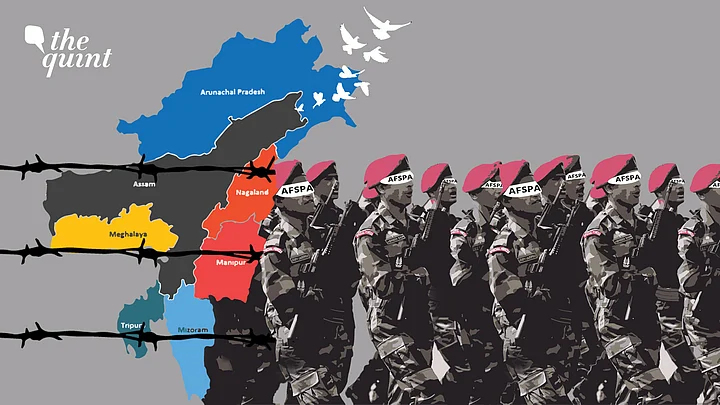Days after 14 civilians were killed by the security forces in the state, the Nagaland Assembly on Monday, 20 December, unanimously passed a resolution demanding that the Centre repeal the controversial Armed Forces (Special Powers) Act, (AFSPA), 1958 from the state and rest of the Northeast.
"The Nagaland Legislative Assembly unanimously resolves to demand that the Government of India repeal the Armed Forces Special Powers Act, 1958 from North East, and specifically from Nagaland, so as to strengthen the ongoing efforts to find a peaceful political settlement to the Naga political issue."Nagaland Assembly's Resolution
Condemning the civilian killings, the resolution, moved by Neiphiu Rio, demanded that the appropriate authority issue an apology for the 'massacre', and that justice be delivered to the perpetrators.
"The House appreciates and supports citizens and civil society organizations in their demand for repealing of AFSPA and delivery of justice while appealing to all sections to follow democratic norms and non-violence in our collective endeavour towards realization of peace and delivery of justice," the resolution noted.
Asserting that the "Naga people have been crying for peace and an early solution to the protracted Naga political issue," the Assembly observed in the resolution that people's voice should be heard and respected.
The resolution was adopted by voice vote during the one-day special session of the Assembly, that had been held to discuss the AFSPA.
What Is AFSPA?
AFSPA allows for armed forces to be conferred with 'special powers', in any region designated as a 'disturbed area', either by the Centre or the Governor of a state or the Administrator of a Union Territory.
Once an area has been designated as a 'disturbed area', the Act provides the armed forces with the following 'special powers':
To open fire or use force, even causing death, against any person in contravention to the law for the time being or carrying arms and ammunition;
To arrest any person without a warrant, on the basis of “reasonable suspicion" that they have committed or are about to commit a cognizable offence;
To enter and search any premises without a warrant;
To destroy fortified positions, shelters, structures used as hide-outs, training camps or as a place from which attacks are or likely to be launched.
How 14 Civilians Were Killed in Nagaland
A vehicle carrying eight coal miners in Nagaland's Oting village was gunned down by army personnel on 4 December, who were engaged in a counter-insurgency mission. Six civilians died in the incident, which was regretted as a case of 'mistaken identity' by the army.
The civilian killings triggered violence in the region on 4 December night, which continued till 5 December. One more civilian died in the violence that had ensued between the locals and the security personnel on 4 December night.
On 5 December, 600-700 locals had barged into the camps of the Assam Rifles in retaliation for the killings, as per the police. The mob had sticks, stones, machetes, and inflammable fluids.
The army had fired upon the villagers in order to disperse the crowd. Seven civilians were killed in the firing.
